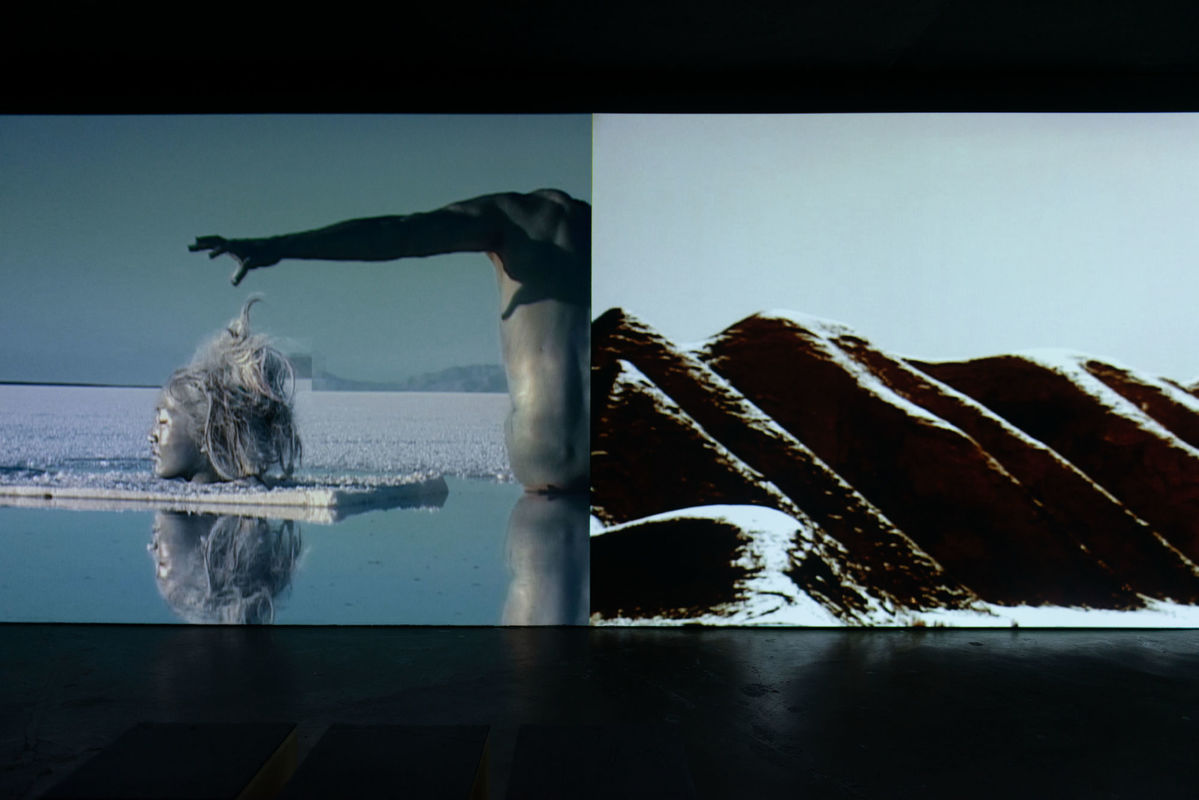
Trinh T. Minh-ha
From the most elementary unit of film – the gaze – towards the unknown until the final consequences, back to the gaze. Questioned, expanded, cut out, turned over, this driving force constantly pulses in Trinh T. Minhha’s work. It is a work that flows – like the water of Surname Viet Given Name Nam (1989) – along the paths of cinema, anthropology, post-colonialism, music, and literary theory, areas in which the artist has been intensely producing since the 1980s.
The gaze in check: filmmaking, observing the other, the interstitial regions that make us as individuals and groups. “What I see is life looking at me,” as Minh-ha’s voiceover says in Reassemblage, a film essay that questions the idea of an ethnography founded in scientific objectivity and the anxiety of a comprehensive record of the real. This questioning is materialized above all in the form, language, and craftsmanship of those who, rather than thinking in the binomial “form-content,” take into account everything that escapes control when considering the politics of “forms and forces” resistant to the unifying logic of genders (according to the theoretical texts of Minh-ha herself). Thus, they feed back on themselves endlessly: Who is looking? Who is looking at who or what? Who is looking back? Who will look at who was looking back at who was looking? And the spiral can keep going round and round indefinitely.
The interests and cultures that engage the artist are as dynamic and complex as the abstractions of force-form: Senegal, China, the experimental music of The Construction of Ruins band, Japan, Togo, Vietnam… Then there are the mountains and deserts (The Desert is Watching, 2003, and Bodies of the Desert, 2005), where the transportation and journeys of the gaze reflect on the fleeting human presence in the geological context of this planet, whose rhythm and dance — through the in-between place that Minh-ha founded – no longer allows any disinterested contemplation.
igor de albuquerque
translated from Portuguese by georgia fleury reynolds
Trinh T. Minh-ha (lives in Berkeley, CA, USA) is a filmmaker, writer, music composer, and university professor. Her work includes nine feature-length films, one of them being What About China? (2022), several large-scale collaborative installations including In Transit (Manifesta 13, Marseille, France) and L’Autre marche (Mueée du Quai Branly, Paris, France), and numerous books including Elsewhere Within Here and Lovecidal. In her career she has received a variety of prizes such as the Vision CPH DOX (2022), Wild Dreamer Lifetime Achievement (Subversive Festival Zagreb, 2014), Women’s Caucus for Art Lifetime Achievement (2012), and MIPDOC Trailblazers (Cannes, 2006).

 Português
Português